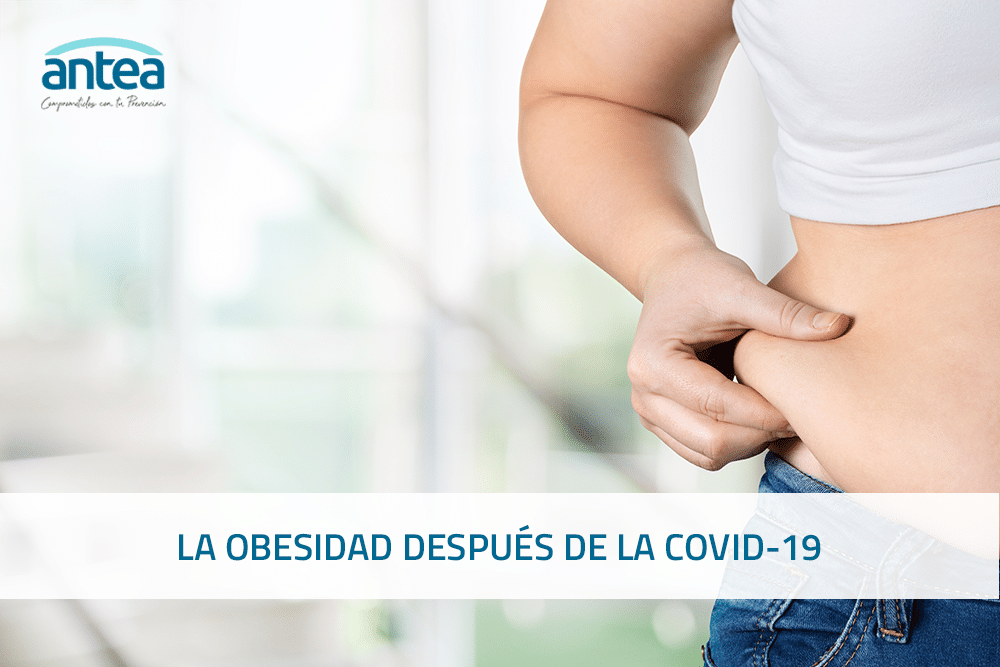12/04/21
Confinement altered our routine and habits. We've spent a lot of time at home, locked up, and we've had to look for activities to be entertained or to distract the little ones.
It highlights a greater weight of home activities, such as pastries and virtual snacks. According to data from consultancy Nielsen, interest in making cakes and other sweets at home skyrocketed so much in Spain during 2020 that the products used for this type of cuisine rose to 70% during confinement.
If we add that in many cases the level of physical exercise that is normally done has been lowered, we have noticed that the pants are no longer the same. It is time for us to analyze the situation and remedy:
Tips for losing weight
- Exercise daily. It is important that we increase the realization of physical exercise now that we can leave the house and the time accompanies: we have to increase the rides, ride a bike or run, if we did it regularly. This activity can be supplemented or combined with exercises at home, we can establish an exercise table or subscribe to any of the channels that propose exercise routines.
- Make a shopping list: so you don't be tempted to buy fatty goods or industrial pastries while shopping, it's best to sign up for the products you need for that week and not get off schedule.
- Choose a day a week when you make a weekly menu taking into account your daily calorie intake and the amount of exercise you're going to do. Avoid getting out of the diet: moments of anxiety or boredom encourage us to go to the kitchen to look for some food with which to alleviate that feeling. Here are 7 recommendations:
1.- Choose the consumption of whole grain products and legumes.
It is advisable to choose whole grain whole grain cereals (whole grain bread, wholemeal pasta, brown rice), and stewed or stewed legumes, trying to cook these foods with vegetables.
Cereal derivatives incorporating sugars and fats, such as pastries and pastry, are excluded, leaving their consumption in exceptional situations.
2.- Opt for preferably low-fat dairy products.
Although dairy consumption is not indispensable for bone health, in populations with a high sedentary rate and other factors that negatively influence bone health, dairy consumption is recommended as a source of calcium. At this time there is controversy over whether or not to recommend skinatated dairy products, but until the scientific controversy is resolved, the Spanish Academy of Nutrition and Dietetics finds it more prudent to continue recommending skidded dairy for adults, as is done in the food-based dietary guidelines of the countries around us.
When talking about the recommendation of the consumption of fermented milks, such as yogurt, kefir, etc., reference is made only to the natural type, not the rest of the varieties flavored, flavoured, with fruits, etc., as they contain a significant amount of added sugar.
3.- Consume food of animal origin, moderately.
Consumption of meats (3-4 times a week, but maximum 1 time a week red meat – beef, lamb or pork), fish (2-3 times a week), eggs (3-4 times a week), and cheeses should be made within the framework of a healthy diet, preferably opting for poultry (chicken, turkey, etc.), rabbit and lean other animals such as pork , and avoiding the consumption of sausages, cold cuts and fat meats of any animal.
In meats and fish, low-fat dining techniques are recommended (iron, sautéed, roasted or stewed with very little fat)
4.- Consumption of nuts, seeds and olive oil.
Olive oil is the dressing fat and cooked par excellence in the Spanish Mediterranean diet. Nuts (almonds, nuts, etc.) and seeds (sunflower, pumpkin, etc.) are also an excellent choice as long as it is natural or toasted ignoring fried, sweetened and salty nuts.
5.- Avoid pre-cooked foods and fast food.
Consumption of pre-cooked foods (croquettes, pizzas, lasagna, canelones, etc.) and fast food (pizzas, burgers, etc.) are generally not recommended in a healthy diet. Due to its high fat and/or sugar content, its consumption is not generally recommended, and therefore not in periods of isolation or home quarantine because they can increase the risk of overweight or obesity and other associated pathologies.
6.- Reduzca el consumo de sal.
Limite el consumo de sal a 5 gramos diarios (equivalentes a una cucharadita):
-
- When cooking and preparing food, use little salt and reduce the use of salted sauces and seasonings (such as soy sauce, meat broth, or fish sauce).
- If you eat canned or dried foods, choose vegetables, nuts, and fruits without added salt or sugar.
- Remove the salt shaker from the table and try instead to give more flavor to the dishes with fresh or dried herbs and spices.
- Check packaged food labels and choose products with the lowest sodium content.
7.- Limitar el consumo de azúcar
-
- Limite el consumo de bebidas que contengan azúcar como refrescos, zumos de fruta y bebidas a base de jugo, concentrados líquidos y en polvo, aguas aromatizadas, bebidas energéticas y deportivas, té o café listos para beber y bebidas lácteas aromatizadas.
- Eat fresh fruit instead of sweets like biscuits, cakes and chocolate. If you have a dessert other than fruit, make sure it contains low sugar and serve small portions.
8.- Mantener una buena hidratación bebiendo suficiente agua
Good hydration is crucial for optimal health. Whenever available and suitable for consumption, tap water is the healthiest and most economical drink. Drinking water instead of sugary drinks is an easy way to limit sugar intake and avoid excess calories.
And of course, if we consider that weight gain is considerable either after a while with healthy routines we do not lose enough weight, it is important to go to the doctor to help us establish a low calorie diet in a controlled way and / or offer us alternatives more adapted to our problem.

